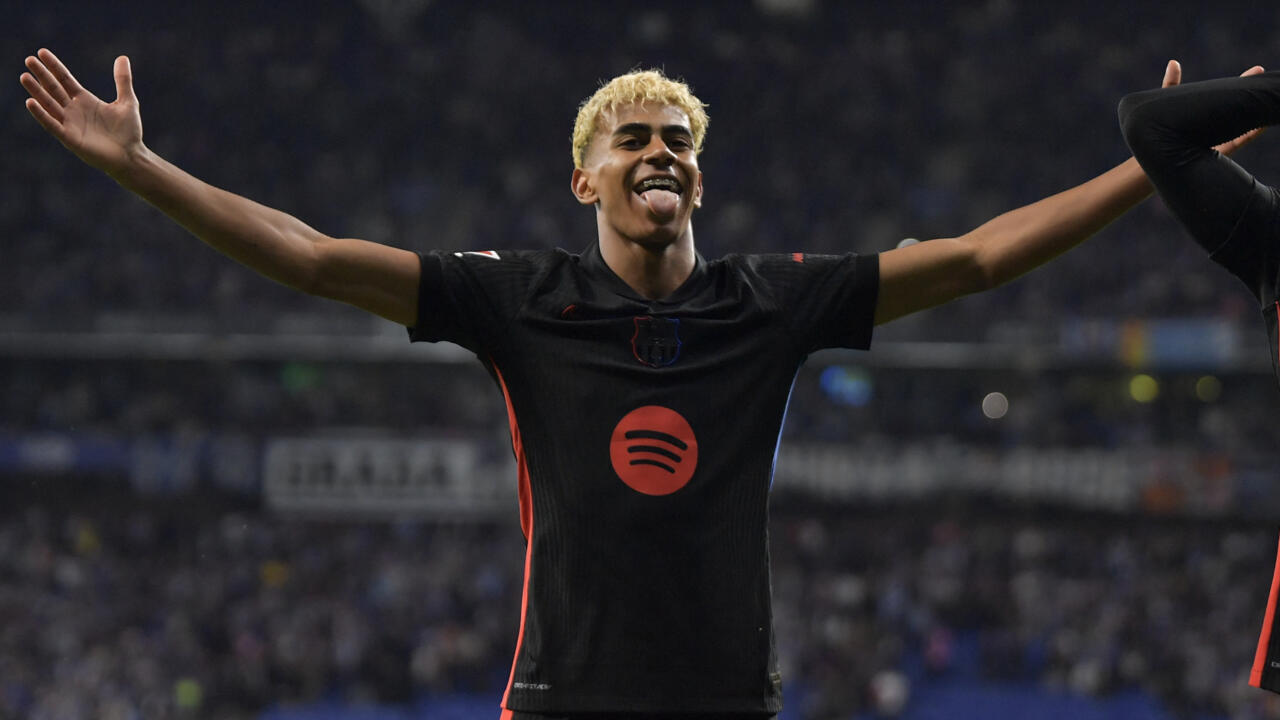Barcelona officially secured the La Liga title on Thursday with a 2-0 victory over Espanyol. This win extended their lead over Real Madrid to an insurmountable seven points, confirming them as the new champions.
Having been considered favorites for several months, the team paired their league success with a Copa del Rey win, marking their first domestic double season since 2017-18. This season`s dominance, which also included reaching the UEFA Champions League semi-finals, wasn`t easily foreseen at the start. Barcelona began the campaign facing significant uncertainty due to a change in management and ongoing financial difficulties. However, things quickly gelled under coach Hansi Flick, who built a remarkably resilient team.
Throughout the season, Barcelona often overpowered opponents, including a Real Madrid side they defeated in all four El Clasico matches with a combined score of 16-7. The team benefited from the steady emergence of young talent Lamine Yamal, and Flick also saw excellent production from his forwards, including a revitalized Robert Lewandowski and a standout Raphinha. Flick`s aggressive, attack-focused philosophy effectively compensated for Barcelona`s defensive vulnerabilities.
As celebrations commence in Barcelona, here`s a look at the key factors behind their title win.Barcelona`s Attacking Prowess
Even with potential interest in players like Dani Olmo early in the season, Barcelona`s financial limitations meant major, transformative signings were unlikely, especially compared to Real Madrid`s acquisition of Kylian Mbappe. Despite this, Flick made the most of his squad by implementing an entertaining and highly effective playing style.
Barcelona fully committed to an attack-minded approach featuring a high defensive line – a high-risk, high-reward strategy that succeeded thanks to the strength of their forward line, led by Lewandowski, Raphinha, and Yamal. They top La Liga with 97 goals from an expected goals (xG) tally of 87.47 this season, showcasing a diverse attack with multiple players contributing significantly. Five Barcelona players have reached double-digit goals this season, including Olmo and Ferran Torres. Goals came from various sources, with Flick`s team leading La Liga in set-piece goals (14), including eight from corners.
Flick also made important adjustments to the players supporting the attack, refinements that boosted Barcelona`s winning margins, even if clean sheets were sometimes elusive. Frenkie de Jong became a regular starter, replacing Marc Casado in the winter to improve defensive stability. Wojciech Szczesny took over from Inaki Pena after first-choice goalkeeper Marc-Andre ter Stegen`s knee injury last fall. While Szczesny had some errors, he averaged 0.9 expected goals against per game, a better figure than Pena`s 1.3.
Raphinha and Robert Lewandowski`s Impact
Flick`s notable achievement in transforming Barcelona into a title-winning side is particularly highlighted by the performances of Raphinha and Lewandowski, with Raphinha being a prime example.
Raphinha, who joined from Leeds United in 2022 and was once viewed as symptomatic of Barcelona`s struggles, has this season become one of the world`s leading attacking players. The Brazilian shifted from a traditional winger role to a more central position, often resembling a second striker. This tactical switch proved highly successful; Raphinha is having a career-best season with 34 goals across all competitions, significantly surpassing his previous high of 17 for Vitoria in 2017-18.
Regarding Lewandowski, the 36-year-old appeared to be declining last season but has improved since reuniting with Flick, his former coach at Bayern Munich. Although slightly less involved in build-up play, he`s become a much more frequent shooter this season, averaging 3.4 shots per La Liga game, up from 2.7 last campaign. His goal return has also risen from 0.5 to 0.8 goals per game. He currently leads La Liga in expected goals (24.65) and ranks third in total shots (109).
Lamine Yamal Leads the Youth Movement
For Flick, integrating Barcelona`s existing players was likely made easier by the presence of a talented group of academy graduates. He inherited a squad where many young players had already gained valuable experience under his predecessor, Xavi, partly necessitated by the club`s financial situation but also a deliberate effort to develop the next generation.
This youth contingent is undoubtedly spearheaded by Lamine Yamal, who firmly established himself as one of football`s future stars this season. The 17-year-old has been a major offensive force with 17 goals and 20 assists across all competitions, leading La Liga in assists. He also ranks second in the league for shots (131). Crucially, Yamal influences every Barcelona attack, extending beyond direct goal contributions. He excels at passing, creates spectacular offensive moments, and has already shown remarkable composure in high-pressure situations. In Yamal, Barcelona possesses a player who can anchor their team for years to come, helping to alleviate the uncertainty that arose after Lionel Messi`s departure highlighted the club`s severe financial challenges.
However, Yamal is not the sole young talent who made a significant impact. Several other academy products became regular starters throughout the season, including defenders Pau Cubarsi and Alejandro Balde, and midfielders Gavi and Pedri. Like Yamal, these players are becoming dependable figures in Barcelona`s new era, providing a sense of stability for a club that may continue to face transfer market limitations for years.

